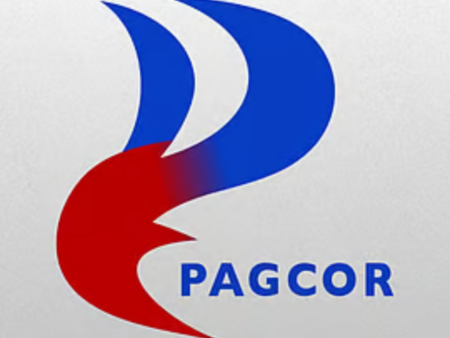In January 2025, the Macau Gaming Inspection and Coordination Bureau (DICJ) reported a total gaming revenue of MOP 18.25 billion ($2.27 billion), reflecting a 5.6% year-on-year decline. This drop marks the second consecutive month of year-on-year losses, following a 2.0% decline in December 2024. Although the January 2025 figure shows a slight increase compared to December, it remains lower than expected. Analysts had forecasted a more modest drop due to the Lunar New Year season, which typically brings increased tourism and gambling activity.
This decline has raised concerns about the recovery trajectory of Macau’s gaming industry, as several factors, including the reduction of VIP play, a shifting regulatory environment, and changing economic conditions in China, continue to influence market performance.
Macau’s Gaming Market: A Deeper Look at the Challenges and Regulatory Changes
-
The Impact of Stricter Gaming Laws
In recent years, Macau’s gaming landscape has undergone significant changes, particularly in terms of regulation. The introduction of stricter gaming laws has played a major role in shaping the market. Among the most notable changes is the curtailment of junket operators. These operators were previously instrumental in attracting high-stakes VIP gamblers to Macau’s casinos, but the new legal framework has dramatically reduced their role. The Macau Government’s crackdown on junket operations has forced casino operators to adapt their business models and shift their focus toward mass-market players rather than high-rollers.
Additionally, the prohibition on soliciting customers from mainland China has resulted in a restructuring of casino operations. The new regulations have pushed gaming companies to rely more heavily on mass-market and premium-mass players, moving away from the VIP clientele that once dominated Macau’s revenue streams.
-
VIP Gaming Decline: A Structural Shift in the Market
The VIP gaming sector has been experiencing a steady decline, with mass-market segments now accounting for over 77% of total gaming revenue. This shift has been driven by several factors, including the tightening of regulatory controls and the growing reluctance of high-stakes gamblers to engage with the region’s gaming venues.
The decline in VIP gaming is particularly notable when compared to pre-pandemic levels, where the VIP segment accounted for a significantly larger share of the market. Casino operators are now adjusting their marketing strategies and operational models to cater more to the mass-market segments, which tend to generate more consistent revenue.
-
Financial Oversight and the Pressure on Junket Operators
As the Macau Government continues to implement tighter financial oversight, casinos are increasingly restricted in how they conduct their operations. The prohibition on junket operators sharing profits has altered the way casino games are marketed and how profits are shared. Junket operators, who were once a major source of VIP clientele, are now limited to commission-based operations. This change has had a profound impact on the region’s ability to generate substantial high-stakes gaming revenue.
At the same time, illicit capital flows into Macau are being closely monitored by authorities. In an effort to curb money laundering and other illegal financial activities, authorities have increased their scrutiny of the ways in which money is moved into the region. As a result, casino operators are facing additional challenges in adapting to this new financial oversight framework.
The Struggle for Recovery: Key Factors Affecting Macau’s Gaming Revenue
Despite the year-on-year decline in January 2025, analysts maintain that Macau’s gaming industry is still on relatively stable ground. While there are challenges to overcome, the industry’s long-term growth prospects remain moderate. Some of the key factors affecting the recovery and growth of the sector include:
-
Declining VIP Revenue and Limited High-Stakes Play
The continued pressure on VIP gaming is one of the most significant challenges facing Macau’s gaming industry. High-roller play, which has traditionally been a major contributor to gaming revenue, remains well below pre-pandemic levels. This trend is unlikely to change in the short term, and casino operators will need to find new ways to boost their revenue, particularly by focusing on mass-market players.
-
Shifting Regulatory Landscape
Another factor that could affect Macau’s recovery is the evolving regulatory environment. The Macau Government has been keen on strengthening financial oversight and compliance, which may result in further changes to the way casinos operate. Future regulatory changes could include tighter controls over gambling activity, as well as further restrictions on junket operators and VIP play.
-
China’s Changing Economic Conditions and Tourism Policies
Macau’s reliance on tourism is a double-edged sword. While the city has historically benefitted from an influx of Chinese tourists, changes in China’s economic conditions and policies could impact the flow of visitors to Macau. However, recent improvements in visa policies have led to optimistic projections about future tourism growth. Positive sentiment towards Macau from Chinese authorities could help boost visitation, especially as the region works to attract more mainland tourists.
Macau’s 2024 Performance: A Full-Year Overview
In 2024, Macau’s Gross Gaming Revenue (GGR) reached MOP 226.78 billion, reflecting a 23.9% year-on-year increase. However, despite this positive annual performance, the final months of the year showed signs of slowing momentum. December 2024 marked the first monthly decline in two years, signaling that growth was beginning to stagnate.
Macau’s gaming market has become increasingly reliant on mass-market revenue, with fewer high-stakes gamblers contributing to the overall total. While this shift has been beneficial for some casinos, it has presented significant challenges for others, particularly those that once relied heavily on the VIP market.
2025 Outlook: Projections and Growth Opportunities
Looking ahead, the Macau Government has projected a full-year GGR of MOP 240 billion for 2025, which would represent a 5.8% growth compared to 2024. However, analysts are divided on whether this target is achievable, given the current trends in VIP gaming and the changing regulatory environment.
One of the primary growth opportunities for the industry is the continued expansion of mass-market gaming. As the VIP segment continues to struggle, casinos will likely focus more on attracting premium-mass players and international tourists. Further regulatory changes, including improvements in financial compliance and anti-money laundering practices, could help restore confidence in the region’s gaming industry.
Conclusion: The Road Ahead for Macau’s Gaming Industry
The Macau gaming industry is navigating a period of significant transformation. Despite a slight decline in January 2025 revenues, the region is expected to experience moderate growth over the long term. The key to the industry’s success will depend on its ability to adapt to regulatory changes, expand its mass-market base, and navigate the challenges presented by declining VIP play.
FAQs About Macau’s Gaming Revenue in January 2025
1. What was the total gaming revenue for Macau in January 2025?
The total gaming revenue for January 2025 in Macau was MOP 18.25 billion ($2.27 billion), reflecting a 5.6% year-on-year decline.
2. How does the January 2025 gaming revenue compare to December 2024?
January 2025’s gaming revenue was slightly higher than December 2024, although analysts had expected a more modest drop due to the Lunar New Year season.
3. What are the main factors contributing to the decline in Macau’s gaming revenue?
The decline in gaming revenue has been attributed to several factors including reduced VIP play, a changing regulatory environment, and shifting economic conditions in China.
4. How has Macau’s gaming market changed over the past few years?
Macau’s gaming market has undergone significant changes, particularly due to the introduction of stricter gaming laws that have curtailed the role of junket operators and shifted the focus toward mass-market players.
5. What impact have stricter gaming laws had on Macau’s gaming industry?
The stricter gaming laws have led to a reduction in junket operations and a shift away from VIP gambling. This has resulted in a larger reliance on mass-market and premium-mass players for revenue generation.
6. What portion of Macau’s gaming revenue now comes from mass-market gaming?
Over 77% of total gaming revenue in Macau now comes from the mass-market segment, which has grown significantly as VIP gaming continues to decline.
7. How has the decline in VIP gaming affected Macau’s casinos?
The decline in VIP gaming has forced casinos to adapt their strategies and focus more on attracting mass-market players, as high-stakes play remains well below pre-pandemic levels.
8. What role do junket operators play in Macau’s gaming market now?
Junket operators are now limited to commission-based operations due to regulatory changes, drastically reducing their influence in bringing high-rolling VIP gamblers to Macau’s casinos.
9. How has Macau’s regulatory environment impacted casino operations?
The Macau Government’s crackdown on illicit financial flows and increased regulatory controls have pressured casinos to adjust their operations, particularly in terms of financial oversight and compliance.
10. What is the outlook for Macau’s gaming industry in 2025?
Despite challenges, the Macau Government has projected a 5.8% growth in Gross Gaming Revenue (GGR) for 2025, with a target of MOP 240 billion. However, analysts remain divided on whether this target is achievable.
11. What are the potential growth opportunities for Macau’s gaming industry?
The growth opportunities lie in the continued expansion of mass-market gaming, attracting premium-mass players, improving financial compliance, and increasing tourism through favorable visa policies.
12. How does the decline in VIP gaming affect the overall revenue in Macau?
The decline in VIP gaming has led to a structural shift, with mass-market segments now responsible for a larger share of revenue. However, this transition has also resulted in challenges for casinos that previously relied heavily on VIP clientele.


















